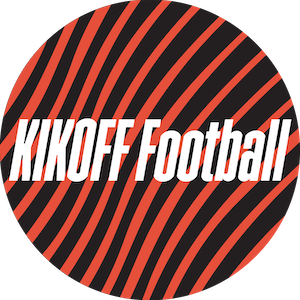Being physically ready to play at your very best come game day is the number one priority for every player.
No-one wants to be sluggish, slow or sore on game day.
That’s why we’ve outlined some very quick and effective ways to get you to game ready that are commonly overlooked.
TRAINING
We all know those players who have shocking attendance at training but can never seem to put their finger on why they can’t play consistently well for 90 minutes or last the full season without a niggling injury.
Your training is the bread and butter of preparation. The main purpose of training is to prepare you for the match demands and of course to improve.
If you have any concerns about your game day readiness, ask yourself honestly, how often do you attend training?
The amount of training sessions you have with your team per week probably correlates well to the level you’re playing at or the time commitment you can dedicate to football.
Regardless of that level, you MUST be training. From a physical standpoint, injuries regularly occur because people do too much without their body being able to handle what it’s being asked to do.
Training enables you to get your body adjusted to the stress you’ll be putting on it throughout the season and missing training sessions is a great way to increase your risk of being sidelined with an injury.
There is of course the fitness component. Accumulating training sessions weekly builds fitness gradually, you probably know that but it’s worth reminding you that you can’t rush physiology and just ‘catch up’ on the pre-season training you missed.
Everyone knows that just one 90 minutes match per week plus the odd training sessions sporadically placed throughout the season isn’t going to get you physically prepared to play at your best.
But for some reason, it happens time and time again at youth, amateur, semi-pro and no doubt some pro clubs.
It’s probably the simplest advice you will receive.
Before worrying about anything complicated….get to training.
NUTRITION
If you’ve been getting to training regularly, completed your pre-season and feeling like your body is good to go then it’s worth considering how you can increase your energy levels and give yourself a bit of ‘free fitness’.
This doesn’t require you to make any major overhaul on your eating habits it just requires you to be consistent with your food /drink choices with the question ‘will this help or hinder me come match day?’.
There is no magic diet or super food you can eat that will transform the way you play or look.
We do however strongly urge you to stick to whole foods for the bulk of your meals i.e. the ones that don’t have a huge list of ingredients. This has proven to bring about the best results when it comes to recovery and energy levels for players we work with and speak to.
The sports dietitians are pretty certain that every person is individual when it comes to what works for them. So, what may work for you may not work for others. Just find consistency.
That being said there are some things you really need to consider, that are well documented to be beneficial for your performance.
-
Protein Too Low – Most players don’t eat enough protein. Your muscles NEED it to repair. Post-session/match this should be taken in asap. Having 1-2 palm size servings of protein every meal and snack is an easy guide to ensure you are getting close to what you need.
-
Carbohydrate Too Low –With the low carb craze many footballers are becoming victim to fatigue as they attempt to play a 90 minute football match with no source of energy. If you have a hard training session or match – you need carbohydrates before and after.
-
Fats Choices – Some players are also worried about eating any sort of fat and others eat too much of poor quality. These are essential macronutrient that your body requires but stick to fats such as olive oil, avocado, fish, eggs, nuts, seeds or almonds.
-
Vegetables – Eat the ones you like. Just keep getting them in. We all know the benefits of vegetables by now.
-
Hydration – Take your bodyweight in kilograms. Divide it by 25. Drink that number in litres of water e.g 75kg / 25 = 3L of water.
We have literally transformed footballers simply by adjusting their nutritional intake. Both on and off the pitch performance improves and their recovery sky rockets.
Match day is coming – is your food choice going to help or hinder you?
RECOVERY
Nutrition is obviously a huge component here. However, the next big rock of recovery is sleep.
At an absolute minimum 7 hours is what you should be aiming for. I’d recommend 8-10 hours if you are training regularly or at a high level.
There is no budging on this. Try a 30-day challenge of getting 8 hours per night sleep and report to us how you feel and performed.
Do the same but sleep for 6 hours per night and then report to us how you feel and performed.
Sleep and nutrition are the cornerstone of recovery and getting your prepared physically to train and play.
SUMMING UP
I know what you’re thinking.
No fancy methods or information that you didn’t already know…boring!!
Sorry to disappoint but spend a day with any successful athlete and they will be:
-
Training regularly
-
Taking care of their nutrition and hydration
-
Getting in their 7-10 hours of sleep per night
The elite are doing the basics and doing them well which gives them 99% of their preparation.
Can you follow their lead by doing the same consistently? If so, you will soon find yourself energetic, recovering quickly, match fit and physically prepared come game day.


